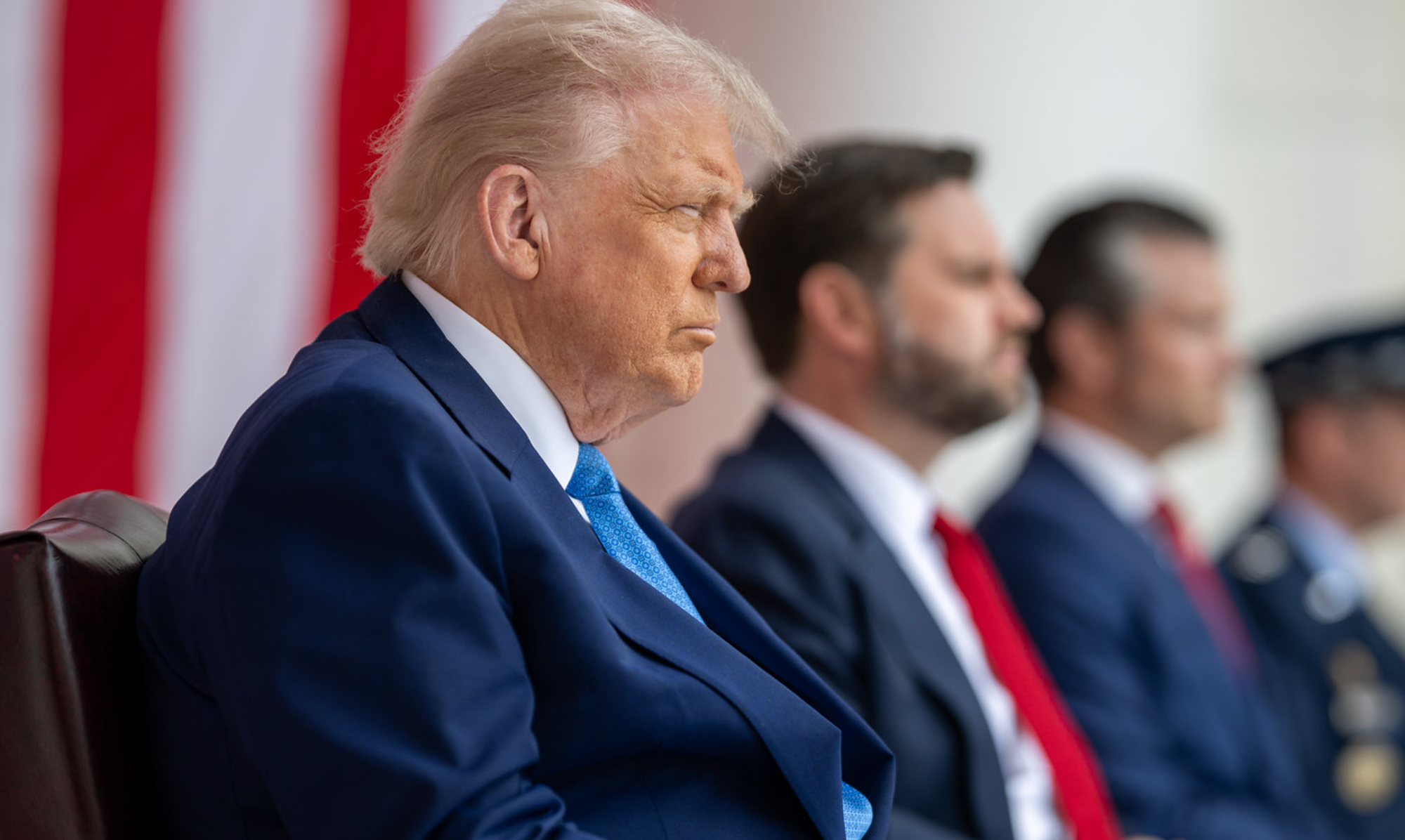In an article for The Bulwark published Thursday, policy analyst Patrick Eddington highlighted the introduction of the MARSHALS Act — a bill that seeks to transfer the U.S. Marshals Service from the executive branch to the judicial branch. Eddington noted that this legislative move demonstrates that at least some members of the Senate and House are willing to remove "certain armed, coercive law enforcement powers from presidential control."
The legislation was presented by Sens. Cory Booker (D-N.J.), Chuck Schumer (D-N.Y.), Alex Padilla (D-Calif.) and Adam Schiff (D-Calif.), alongside Reps. Eric Swalwell (D-Calif.), Jamie Raskin (D-Md.) and Hank Johnson (D-Ga.) shortly before the Memorial Day holiday.
"It’s a great idea that has zero chance of becoming law this session—but it demonstrates that at least some Senate and House members are willing to remove some of the armed, coercive law enforcement power currently under presidential control. That alone is a mental and political breakthrough that all those loyal to the constitutional republic should embrace," Eddington wrote.
READ MORE: Revealed: The 'Big Beautiful Bill' contains an ugly favor for one of Florida’s top industries
He continued: "THE MARSHALS ACT IS JUST ONE example of the kind of legislative action that needs to be taken to prevent future presidential domestic political repression. Many other changes are needed as well; law professors, political activists, and commentators on constitutional matters are all likely to have their own lists of needful reforms—most of which will boil down to taking away the tools that make repression possible."
The analyst also advocated for a constitutional amendment that would transfer most federal law enforcement agencies from executive to judicial control. Under this proposal, he outlined, the Secret Service and the Federal Protective Service would remain within the executive branch due to their specific protective functions for federal officials and facilities. However, all other federal law enforcement agencies would be restructured to operate under the authority of the federal judiciary, thereby ensuring their independence from the politically influenced executive branch.
"Such a constitutional amendment should also modify current law to ensure that no president can call up a state’s National Guard units for 'civil disturbance,' immigration enforcement, or any other domestic mission without the express written consent of the state’s governor," he added.
"Such an amendment would go far to restore and preserve our constitutional republic. But it would unquestionably be a very heavy political lift, to put it mildly," Eddington wrote.
READ MORE: 'Who is running the show?': Trump's sudden disappearance from public view sparks questions
The survey, which evaluated the health of U.S. democracy on a scale from 0 (complete dictatorship) to 100 (perfect democracy), indicates that after Trump's election in November, scholars rated American democracy at 67. However, several weeks into his second term, that rating dropped to 55, marking the most substantial decrease since the survey's inception in 2017.
In March, a survey conducted by Bright Line Watch, a project involving over 500 political scientists, revealed a significant decline in perceptions of American democracy.
